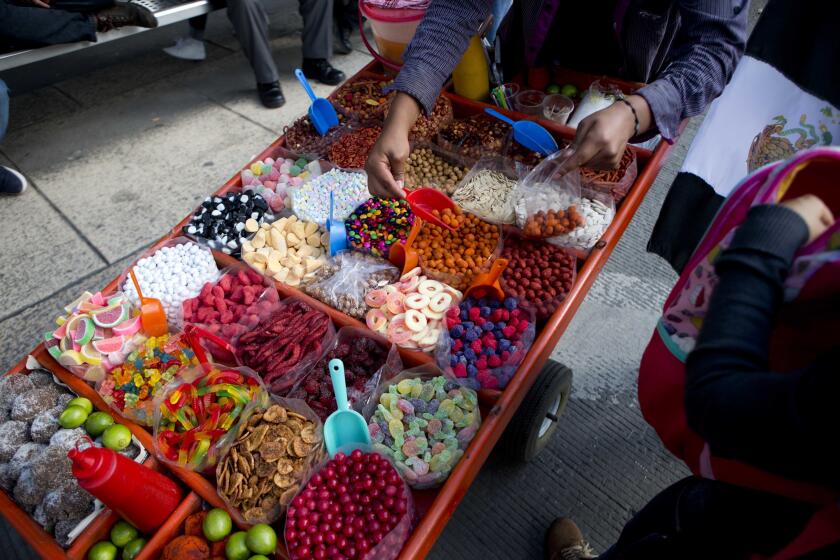Kenya Bans Leading Dissident Periodical : Suppression: President Moi also inveighs against church leaders and political figures urging a change in domination by his party.
NAIROBI, Kenya — In what could be a signal of a renewed crackdown on political opposition in this one-party country, the government Saturday announced a permanent ban on the Nairobi Law Monthly, a leading voice of dissent.
It was the fourth time in two years that the government had banned a politically outspoken periodical, although Kenya’s constitution guarantees freedom of the press. Under government regulations, it is now illegal for anyone to possess even a past issue of the Law Monthly, which faced numerous incidents of official harassment during its two-year life.
The rationale for the banning order was not made public, but in its latest issue, the Law Monthly had called for the dissolution of Parliament and for a constitutional amendment allowing the recall of a president who acts contrary to national law, a clear challenge to President Daniel Arap Moi.
The government’s move came as Moi stepped up a rhetorical campaign against church leaders and political figures calling for a change in the domination of Kenyan politics by the Kenya African National Union (KANU). Since 1982, KANU has been the country’s sole legal political party. On Wednesday, Moi accused the Church of the Province of Kenya, the Anglican church here whose lay and clerical leaders have been critical of Kenya’s political stagnation, of “working with dissidents” to destabilize the country.
Moi’s onslaught ended a lull in the political fracas that began in July, when the regime responded to growing public sentiment in favor of political pluralism by jailing 15 opposition figures, including Gitobu Imanyara, editor and publisher of the Law Monthly. Imanyara was later released, but he was immediately rearrested and charged with sedition. He was again set free and remains at large.
Several other government critics imprisoned in July, including former Cabinet members Kenneth Matiba and Charles Rubia, are still in jail and have not been charged with a crime.
The banning of the Law Monthly is likely to exacerbate political tensions between Kenya and the United States, one of this country’s leading foreign aid donors. American officials have been overtly critical of Moi’s intolerance of political dissent, and the American Embassy here quickly responded to the banning order by calling the publication “an important forum for legal and social commentary.
“We very much regret the banning,” said the statement, which called for the order to be “reconsidered.”
The move comes as Congress is preparing to consider this year’s foreign aid donation to Kenya, which had already been jeopardized by congressional anger at the summer crackdown. Kenya has been expected to receive more than $50 million in U.S. aid in the current fiscal year. Washington sources say U.S. displeasure at the unfolding events in Kenya was made clear several times last week to Vice President George Saitoti, who has been in Washington for a conference of the World Bank and International Monetary Fund.
On Friday, the day the Law Monthly was officially banned, Saitoti met with Sen. Edward M. Kennedy (D-Mass.) and “underlined that Kenya was committed to democratic principles and the rule of law,” according to a dispatch from the official Kenya News Agency.
The Law Monthly interlarded its standard fare of technical legal articles with extensive coverage of the one-party issue and of the Moi administration’s questionable record on human rights. Many of these articles were written by lawyers and others the government considers dangerous dissidents, including Gibson Kamau Kuria, a lawyer who escaped the July crackdown by taking refuge in the U.S. Embassy here. He was later permitted to leave the country to take up a one-year fellowship at Harvard Law School.
In July the magazine devoted virtually its entire issue to articles about the one-party debate, including a section tweaking President Moi himself by reprinting remarks he had made favoring political plurality in 1964, when he was a leader of the opposition Kenya African Democratic Union (KADU).
“The people of Kenya would like to see an effective opposition to keep the government on its toes,” he said at the time. Shortly thereafter, Moi joined KANU, then led by Jomo Kenyatta, and upon Kenyatta’s death in 1978, he succeeded to the presidency. All parties other than KANU were outlawed in 1982.
More to Read
Sign up for Essential California
The most important California stories and recommendations in your inbox every morning.
You may occasionally receive promotional content from the Los Angeles Times.










